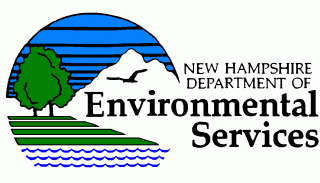Best Management Practices for Backyard Mechanics and Hobbyists

Every year homeowners, backyard mechanics, and hobbyists spill or dispose of gas, oil, antifreeze and other motor vehicle or power equipment fluids that end up in the groundwater the majority of New Hampshire’s residents use as a drinking water source.
Restoring contaminated groundwater can cost millions, and sometimes billions, of dollars. Here in New Hampshire an estimated $400,000/month is spent on remediation of MtBE alone, and that’s only one of the constituents in gasoline that can pollute our drinking water.
Backyard mechanics and motor vehicle enthusiasts can easily help prevent groundwater contamination of drinking water supplies by following a few simple practices to prevent spills, leaks, and other potential sources of contamination. These practices are easy to follow and usually cost nothing but a little time and effort.
- Never pour used oil, gasoline, transmission fluid, or antifreeze on the ground or down a drain. Local garages, waste transfer facilities, or household hazardous waste collection sites usually accept these used fluids for recycling, often for little or no charge.
- Refuel or repair engines over an impervious surface such as a concrete garage floor or a tarp on the ground. Always use a drip pan large enough to contain the motor vehicle or power equipment fluids being replaced or drained.
- Completely drain used oil filters over a drip pan or pail before disposal. Filters can take at least two days to fully drain. Many transfer facilities accept fully drained used oil filters for recycling. Store and transport used oil filters in a covered leak-proof container, like a plastic 5-gallon pail, until disposal.
- Always use a funnel or similar device when transferring new or used motor vehicle fluids from one container to another or from a container to the vehicle.
- Store as little gasoline or kerosene as possible around the home and always in UL-listed containers stored under cover and on an impervious surface. Make sure the containers’ built-in spouts pour without spilling. Check all containers of motor vehicle fluids for leaks, at least once a month.
- Drain all fluids from used motor vehicle parts before removing them from the vehicle (Do this over a drip pan or impervious surface.) and store them on an impervious surface under cover or inside a covered leak-proof container, such as a large lidded tub.
- Keep absorbent materials such as pads, Speedee-Dri, kitty litter, or other clay-based products handy to the work area and clean up all spills as soon as they occur. Dispose of all used absorbents immediately in a leak-proof receptacle.
For additional information contact the Department of Environmental Services at 271-7017 or 271-2947. Find additional information regarding pollution prevention and other waste recycling programs at the website








